Director – Lee Haven Jones – 2021 – UK (Wales) – Cert. 18 – 93m
**
The well-heeled wife of a local MP hires a maid to serve a meal for guests, but then things go horribly wrong – shot in the Welsh language and out in cinemas on Friday, August 19th
It’s unusual to see a film executed completely in the Welsh language, and for pulling that off, the makers of The Feast are to be congratulated. Unfortunately, apart from that element and its striking visual palette, this fails to engage.
In rural Wales, well-heeled Glenda (Nia Roberts) is preparing to have guests over for the evening. Unfortunately, the girl she usually hires from the pub is unavailable, so she’s taken a replacement, Cadi (Annes Elwy), another girl who works there and comes highly recommended. However, Cadi is an unknown quantity and the woman doesn’t really trust her – and won’t do so unless Cadi can do something to earn that trust.
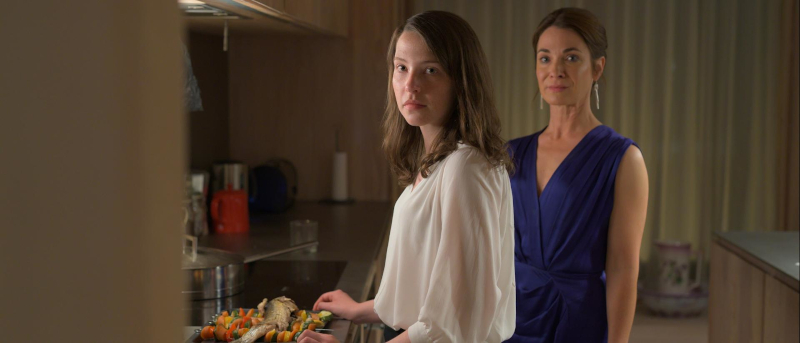
The woman and her family don’t feel like the sort of people you’d want to have anything to do with if you could avoid them. From Cadi’s point of view, she is most definitely not trusted by the woman who hired her, and feels most definitely an outsider. But, as it turns out, Cadi may have a separate agenda of her own.
A drilling operation goes badly wrong and leaves a casualty in its wake. Then, one by one, as Cadi meets them, we’re introduced first to Glenda’s family, then to the guests. Glenda has two grown up sons. One of them, Guto (Steffan Cennydd), is home from London, clearly loves life in the capital and can barely conceal his disdain for rural Wales where nothing happens. He noodles on his electric guitar but would really much rather be doing drugs, something he tells his father he’s given up. The other, Gweirydd (Sion Alun Davies) has taken time out from a career in medicine to train for a triathlon.
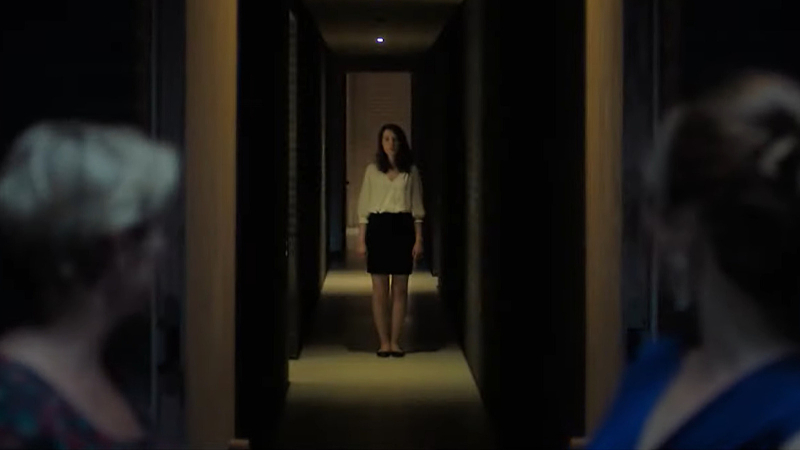
The house is a triumph of stylish, modern architecture and one’s first impression is that it must have cost Glenda and her husband a packet, although it seems she inherited it from her farmer parents. Or at least inherited the land. Husband Gwyn (Julian Lewis Jones) is an MP, the type who, while he might talk about representing his local constituents, seems to have fingers in all sorts of lucrative pies and when it comes down to it is more interested in feathering his own nest than helping others, with his wife complicit in these schemes at every turn.
Many of these pies seem to have been set in motion by one of the guests, the wheeler-dealer Euros (Rhodri Meilir), a long time friend and associate of the couple who has made them quite a few tidy sums over the years, helping them abandon working the land as farmers and finding more effective ways of using it to generate some quite considerable income.
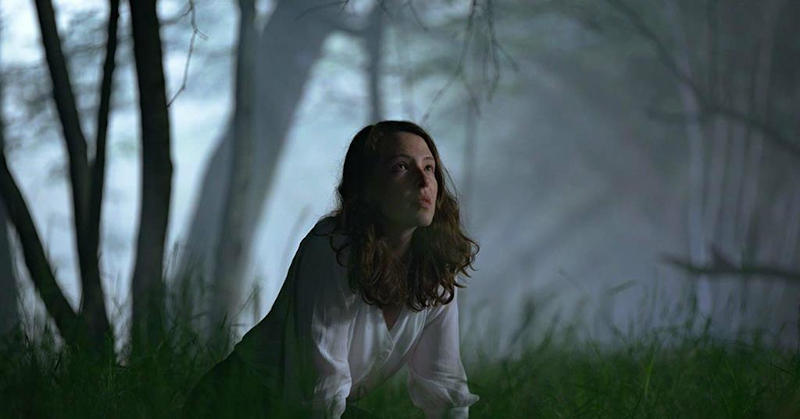
By way of contrast, their other guest is farmer’s wife Mair (Lisa Palfrey) from the neighbouring farm that borders on the family’s land. She and her husband still farm their land, apart from a section known as ‘the Rise’, an area where dark secrets from the past mean the land is better left well alone. Euros, however, thinks that their land, including ‘the Rise’, has financial potential – and wants to help Mair and her husband develop and exploit it for maximum gain.
However, Mair is suspicious and hesitant – and, above all, does not intend to disturb ‘the Rise’ for fear of what might ensue. Alas, a little of ‘the Rise’ is on Glenda and Gwyn’s land, where Euros already has drilling access and the damage has already been done.
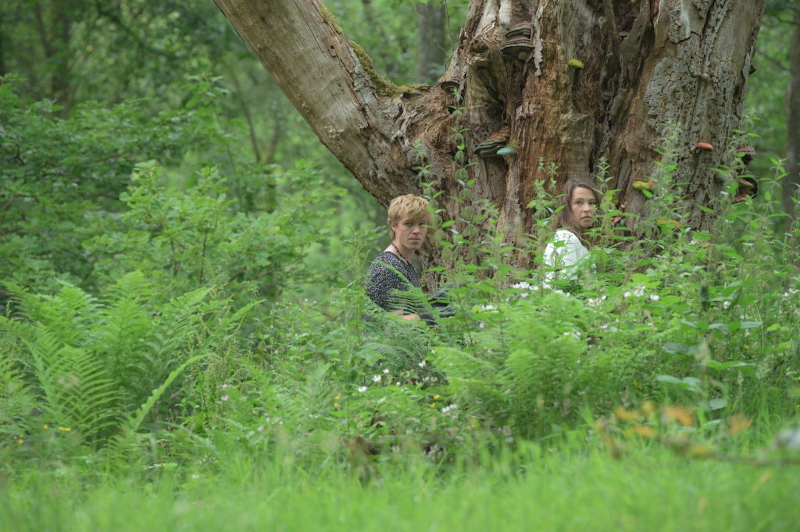
While the film looks gorgeous courtesy of the artful cinematography of Bjørn Ståle Bratberg and the superb location of the Life House, designed by architect John Pawson, trying to get a handle on it is a bit of a problem. There’s nothing really likeable about any of the family and it’s hard work trying to find even a sliver of their character that you like.
Which would be fine if there was something to latch onto about Cadi, but she seems almost emotionless and passionless. Euros generates all the charm of the worst kind of used car salesman. That only leaves farmer’s wife Mair, the one reasonably sympathetic character here, but since she doesn’t appear until the final reel, the damage has been done by then.
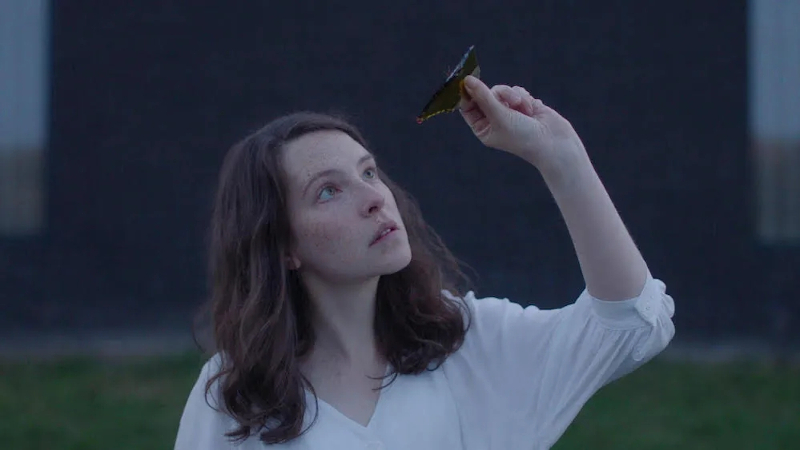
That’s not to say that there isn’t some other way of having unsympathetic characters hold our attention, it’s just that no element here achieves that. Consequently the audience is left to founder with nothing to hold on to.
As the hosts, their family and their guests prepare and consume the eponymous feast, so too they meet their comeuppance as Cadi turns into a sort of gory equivalent of an avenging angel, plugging into tendrils growing out of the ground (as per the film’s poster) and repurposing broken glass for use of in bodily orifices last seen Cries And Whispers (Ingmar Bergman, 1972), here reinvented for unsettling sexual gore rather than that film’s self-loathing and emotional angst. Thanks, but no thanks.
The Feast is out in cinemas in the UK on Friday, August 19th.
Trailer:
